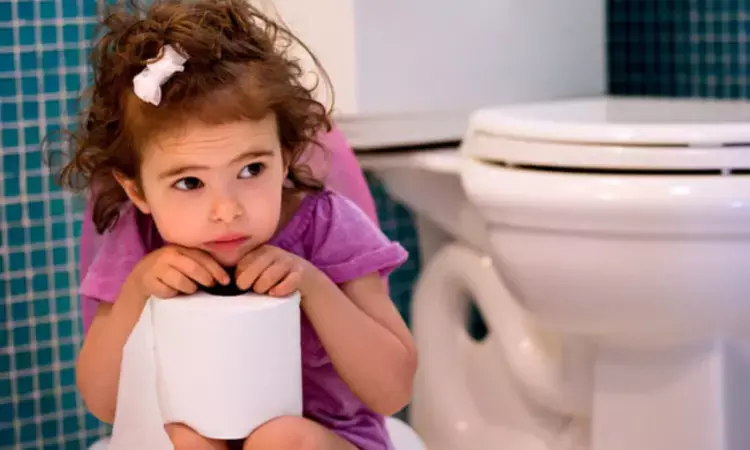- Home
- Medical news & Guidelines
- Anesthesiology
- Cardiology and CTVS
- Critical Care
- Dentistry
- Dermatology
- Diabetes and Endocrinology
- ENT
- Gastroenterology
- Medicine
- Nephrology
- Neurology
- Obstretics-Gynaecology
- Oncology
- Ophthalmology
- Orthopaedics
- Pediatrics-Neonatology
- Psychiatry
- Pulmonology
- Radiology
- Surgery
- Urology
- Laboratory Medicine
- Diet
- Nursing
- Paramedical
- Physiotherapy
- Health news
- Fact Check
- Bone Health Fact Check
- Brain Health Fact Check
- Cancer Related Fact Check
- Child Care Fact Check
- Dental and oral health fact check
- Diabetes and metabolic health fact check
- Diet and Nutrition Fact Check
- Eye and ENT Care Fact Check
- Fitness fact check
- Gut health fact check
- Heart health fact check
- Kidney health fact check
- Medical education fact check
- Men's health fact check
- Respiratory fact check
- Skin and hair care fact check
- Vaccine and Immunization fact check
- Women's health fact check
- AYUSH
- State News
- Andaman and Nicobar Islands
- Andhra Pradesh
- Arunachal Pradesh
- Assam
- Bihar
- Chandigarh
- Chattisgarh
- Dadra and Nagar Haveli
- Daman and Diu
- Delhi
- Goa
- Gujarat
- Haryana
- Himachal Pradesh
- Jammu & Kashmir
- Jharkhand
- Karnataka
- Kerala
- Ladakh
- Lakshadweep
- Madhya Pradesh
- Maharashtra
- Manipur
- Meghalaya
- Mizoram
- Nagaland
- Odisha
- Puducherry
- Punjab
- Rajasthan
- Sikkim
- Tamil Nadu
- Telangana
- Tripura
- Uttar Pradesh
- Uttrakhand
- West Bengal
- Medical Education
- Industry
Mirabegron beneficial in children with neurogenic detrusor overactivity: Study

Mirabegron is significantly useful in children above three years with lower urinary tract dysfunction, suggests a study published in the Neurourology and Urodynamics.
A group of researchers from Poland performed a study to evaluate the efficacy and safety of mirabegron in children and adolescents (aged 3 to <18 years) with neurogenic detrusor overactivity (NDO) using clean intermittent catheterization.
The researchers conducted an open-label, multicentre, baseline-controlled, Phase III study (NCT02751931), participants received once-daily mirabegron at an adult dose equivalent of 25 mg. The dose was increased to 50 mg equivalent unless there were safety/tolerability concerns. The primary endpoint changed from baseline to Week 24 in maximum cystometric capacity (MCC). Secondary urodynamic assessments, Pediatric Incontinence Questionnaire (PIN-Q), Patient Global Impression of Severity (PGI-S), Clinician Global Impression of Change (CGI-C), and Acceptability questionnaires were included.
The results of the study are as follows:
- Overall, 86 participants received treatment; 68 were included in efficacy assessments.
- A statistically significant increase in maximum cystometric capacity (MCC) from baseline to Week 24 was observed; this increase was apparent from Week 4.
- Significant increases in bladder compliance, bladder volume until the first detrusor contraction, average volume per catheterization, maximum daytime catheterized volume and number of dry days per week. Significant decreases in detrusor pressure and number of leakage episodes per day were also observed.
- Significant improvement in, Patient Global Impression of Severity (PGI-S) but not Pediatric An incontinence Questionnaire (PIN-Q) was observed.
- Most participants reported their condition had either much or very much improved using the Clinician Global Impression of Change (CGI-C).
- Mirabegron was well tolerated in this population with a profile aligned with that in adults.
The researchers concluded that Mirabegron was effective and well-tolerated in the treatment of pediatric patients with neurogenic detrusor overactivity (NDO).
Reference:
Efficacy and safety of mirabegron in children and adolescents with neurogenic detrusor overactivity: An open-label, phase 3, a dose-titration study by Baka-Ostrowska M et. al published in the Neurourology and Urodynamics.
https://doi.org/10.1002/nau.24657
Dr. Shravani Dali has completed her BDS from Pravara institute of medical sciences, loni. Following which she extensively worked in the healthcare sector for 2+ years. She has been actively involved in writing blogs in field of health and wellness. Currently she is pursuing her Masters of public health-health administration from Tata institute of social sciences. She can be contacted at editorial@medicaldialogues.in.
Dr Kamal Kant Kohli-MBBS, DTCD- a chest specialist with more than 30 years of practice and a flair for writing clinical articles, Dr Kamal Kant Kohli joined Medical Dialogues as a Chief Editor of Medical News. Besides writing articles, as an editor, he proofreads and verifies all the medical content published on Medical Dialogues including those coming from journals, studies,medical conferences,guidelines etc. Email: drkohli@medicaldialogues.in. Contact no. 011-43720751


